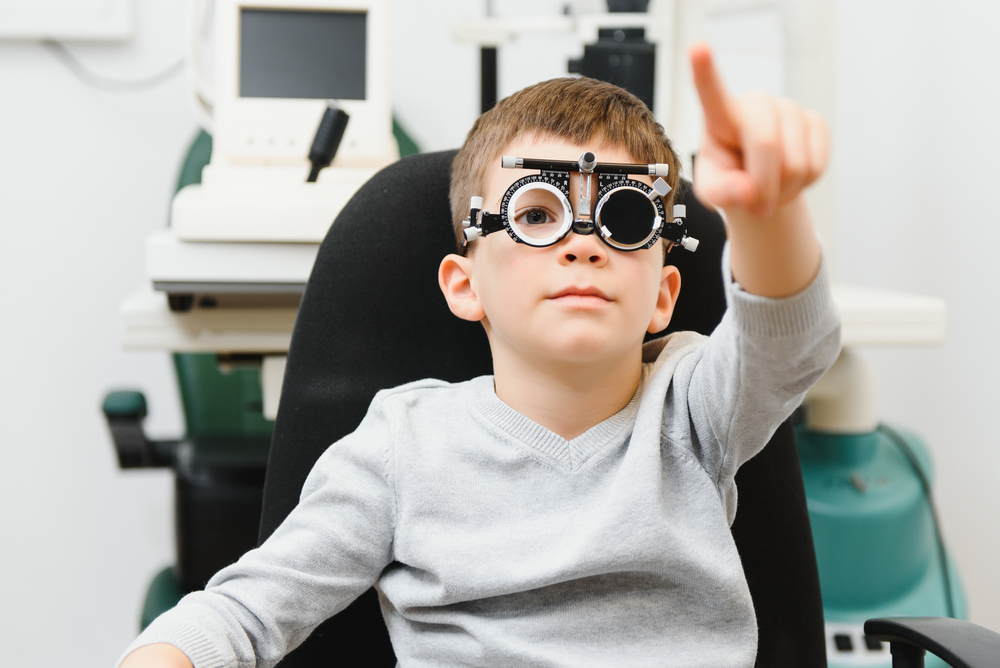The Importance of Pediatric Eye Exams: Starting Early for Lifelong Vision Health
Blog:The Importance of Pediatric Eye Exams: Starting Early for Lifelong Vision Health

The Importance of Pediatric Eye Exams: Starting Early for Lifelong Vision Health
As a parent, you want the best for your child's overall health and well-being. One crucial aspect that is often overlooked is the importance of regular pediatric eye exams. Vision plays a vital role in a child's learning, development, and overall quality of life. By starting early and prioritizing your child's eye health, you can set them up for a lifetime of clear and comfortable vision.
The Importance of Pediatric Eye Exams
Your child's eyes undergo rapid development during the early years of life. From birth to the age of 6, their visual system is undergoing critical stages of growth and maturation. During this time, it is essential to monitor their eye health and identify any potential issues before they can impact their development and learning.
Regular pediatric eye exams can detect a wide range of vision problems. Early detection and treatment of these conditions can prevent long-term complications and ensure your child's visual system develops properly.
Common Eye Conditions in Children
While children can develop a variety of eye conditions, some of the most common include:
- Refractive Errors: Nearsightedness (myopia), farsightedness (hyperopia), and astigmatism are the most prevalent refractive errors in children. These conditions can make it difficult for children to see clearly at certain distances, affecting their ability to learn and participate in activities.
- Lazy Eye (Amblyopia): This condition occurs when one eye develops weaker vision than the other, often due to a misalignment of the eyes (strabismus) or a significant difference in refractive error between the two eyes.
- Eye Misalignment (Strabismus): Strabismus is a condition where the eyes do not align properly, causing them to point in different directions. This can lead to double vision, depth perception issues, and the development of lazy eye.
- Color Vision Deficiencies: Some children may have difficulty distinguishing certain colors, which can impact their ability to learn and navigate their environment.
Early detection and treatment of these conditions are crucial in ensuring your child's visual development and overall well-being.
The Benefits of Regular Pediatric Eye Exams
Scheduling regular pediatric eye exams can provide numerous benefits for your child:
- Early Detection and Treatment: Comprehensive eye exams can identify vision problems in their early stages, allowing for prompt intervention and treatment to prevent long-term complications.
- Improved Academic Performance: By addressing vision-related challenges, your child can better focus, read, and process visual information, leading to improved academic performance and overall learning outcomes.
- Enhanced Physical and Social Development: Addressing vision issues can improve your child's hand-eye coordination, depth perception, and spatial awareness, allowing them to participate in physical activities and social interactions with greater confidence and success.
- Lifelong Vision Health: Establishing a routine of regular pediatric eye exams sets the foundation for a lifetime of healthy vision, ensuring your child's eyes continue to function optimally as they grow and develop.
What to Expect During a Pediatric Eye Exam
Pediatric eye exams are designed to be gentle, engaging, and tailored to the specific needs of children. During the exam, your child's eye doctor will typically:
- Assess Visual Acuity: This involves testing your child's ability to see clearly at various distances, using age-appropriate eye charts and techniques.
- Evaluate Refractive Errors: The doctor will measure the curvature of your child's eyes and determine the presence of any refractive errors, such as nearsightedness, farsightedness, or astigmatism.
- Check for Eye Alignment and Coordination: The doctor will assess how well your child's eyes work together, looking for any signs of strabismus or lazy eye.
- Examine Eye Health: A thorough examination of the internal and external structures of the eyes will be conducted to identify any potential issues or abnormalities.
- Discuss Findings and Treatment Options: The eye doctor will review the exam results with you, explain any identified vision problems, and provide recommendations for treatment or follow-up care.
Starting Early for Lifelong Vision Health
Prioritizing your child's eye health through regular pediatric eye exams is a crucial investment in their overall well-being and future success. By catching vision problems early and addressing them promptly, you can set your child up for a lifetime of clear, comfortable, and confident vision.
To schedule your child's comprehensive pediatric eye exam and take the first step towards lifelong vision health, contact Texas State Optical. We are dedicated to providing personalized, compassionate care to ensure your child's visual needs are met at every stage of their growth and development. Visit our office in Laredo, Texas, or call (956) 724-3242 to book an appointment today.


